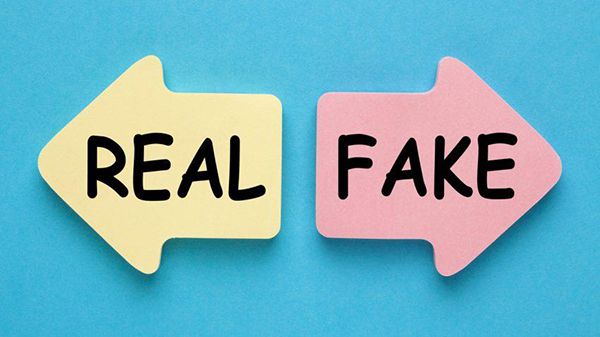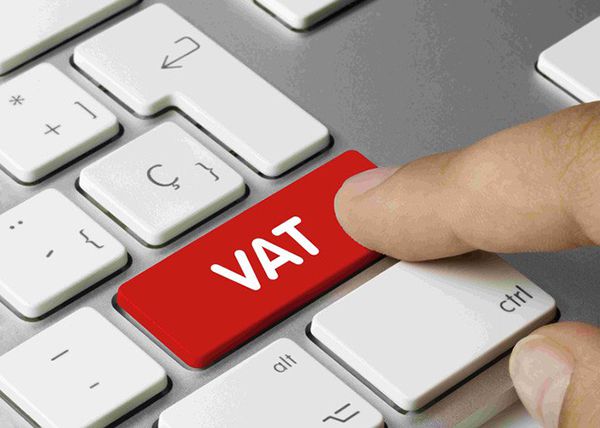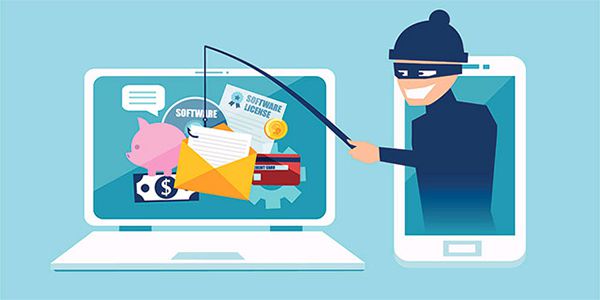The story of fake goods has happened in our lives for a long time, even it seems that society still accepts its existence and lives with it. The sale of fake goods not only infringes upon the intellectual property rights, reputation and profits of individuals and organizations producing and trading authentic goods, but also directly affects the health of consumers if they buy poor quality fake products which are pharmaceutical products, food products, cosmetics, etc.
The production and trading of fake goods is still common and very complicated in terms of scale, field, and distribution method. The main reasons for this are:
- Super profits from the production and sale of fake goods;
- The owners of intellectual property rights are not really interested in registering and taking measures to protect their intellectual property rights.
- A part of consumers know that the goods are fake but still accept to buy them because the price of these goods is cheaper than the real ones (especially for products such as bags, shoes, ...)
- Causing economic damage, greatly affecting the profits of authentic individuals and organizations of production and business. Fake products are often of lower quality than the authentic things, making consumers confused about the quality of the authentic things, thereby reducing the brand's reputation. On the other hand, due to the competitive advantage in price, fake goods cause authentic products, having clear origin into a state of stagnation, declining sales.
- In addition to causing economic damage to authentic production and business organizations and individuals, fake goods also seriously affect the health of consumers, especially fake products that are foods, drinks, medicines, cosmetics.
Buying and selling fake goods means the performance of one, several or all activities of offering, displaying, storing, preserving, transporting, wholesale, retail, export, import and other activities of bringing fake goods into the market.
Fake goods circulating on the market include fake goods displayed, promoted, preserved, transported and kept during the sale and purchase of fake goods.

Article 213 of the Law on Intellectual Property stipulates Intellectual property counterfeit goods as follows:
“1. Intellectual property fake goods regulated in this Law comprise goods bearing counterfeit marks and goods bearing counterfeit geographical indications (hereinafter referred to as counterfeit mark goods) defined in clause 2 of this article and pirated goods defined in clause 3 of this article.
2. Counterfeit mark goods means goods or their packages bearing a mark or sign which is identical with or indistinguishable from a mark or geographical indication currently protected for those very goods, without permission from the mark owner or organization managing the geographical indication.
3. Pirated goods means copies made without permission from the copyright holder or related right holder.”
According to the provisions of Clause 7, Article 3 of Decree No. 98/2020/ND-CP dated 26/08/2020 of the Government providing for penalties for administrative violations in commercial activities, production and trading of fake goods and prohibited goods and protect the interests of consumers, fake goods include:
- Goods whose uses are not consistent with their nature or names; the goods which are useless or whose uses are other than the announced or registered ones;
- Goods of which one of quality indicators or basic specifications or the amount of primary substances contributing to their uses only reaches 70%, or less, compared to the minimum levels prescribed in technical regulations or quality standards registered, or announced, or specified in their labels or packages;
- Counterfeit drugs defined in Clause 33 Article 2 of the 2016 Law on Pharmacy and counterfeit herbal ingredients defined in Clause 34 Article 2 of the 2016 Law on Pharmacy;
- Veterinary drug or pesticide that does not contain any active ingredients; does not contain all of registered active ingredients; contains active ingredients other than those specified on its label or package; contains at least an active ingredient whose content only reaches 70%, or less, compared to the minimum level prescribed in relevant technical regulations or quality standards registered or announced;
- The good whose label or package containing information forging name or address of manufacturer, importer or distributor, forging registration number, declaration number or barcode of the good, forging package of good of another entity, or forging the origin of good or place of manufacturing, packaging or assembling;
- Counterfeit stamps, labels and packages of goods.
The terms "fake good" and "good that imitates the model" are often used interchangeably, but they are not exactly the same.
Fake goods are designed to look exactly like the authentic goods, but are often made from low-quality materials and emblazoned with logos and trademarks of the authentic goods to fool consumers into thinking it's the authentic goods.
Goods that imitate the model are also products that have an appearance that is close to the authentic thing but will not be exactly the same and will not carry the logo, trademark of the authentic product or will attach a logo that is a variation of the authentic product. In general, for good that imitates the model, consumers will easily know that it is not the authentic good.
The sale of fake goods in traditional shops and markets has existed for a long time, and the authorities have also repeatedly opened waves of troops to check and deal with violations, but in the end, everything remains the same. The source of fake goods is mainly imported from China at a very cheap price, because of high profits, shop owners and small traders are willing to import them for sale and a part of consumers are still willing to buy them because the price matches their income.
In recent times, due to the development of the internet, the sale of products with signs of counterfeiting is taking place widely from social networks to e-commerce websites.
Livestream videos selling big brands at cheap prices on Facebook, these livestream videos have hundreds of thousands of views every night. The advertised items come from big brands like Gucci, Dior, Louis Vuitton, ... but cost only a few hundred thousand dong. Besides social networks that have appeared for many years like Facebook or Zalo, TikTok is also a popular sales channel.
In addition to social networks, the sale of goods with signs of counterfeiting through e-commerce websites is also booming. Consumers just need to go online and type in a search term, a series of products will appear with all kinds of models, prices, and different qualities. The spread of online sales makes users fall into a matrix because even information about origin and barcode can be faked easily.

According to the provisions of Article 193 of the Penal Code, those who produce or trade in fake goods being food or food additives, depending on the nature and seriousness of their violations, may be sentenced of from 02 years to 20 years or life imprisonment. In addition, the offenders may also be fined from VND 20 million to VND 100 million, be banned from holding certain posts, practicing certain occupations or doing certain jobs for 01 to 05 years, or be confiscated a part or all of their property.
If the commercial legal entity commits a crime, depending on the nature and seriousness of the violation, it may be fined from VND 01 billion to VND 18 billion, suspend its operation for a term of 06 months to 03 years, or permanently suspend its operation. In addition, commercial legal entities may also be banned from doing business, from operating in certain fields or from raising capital for 01 to 03 years.
According to the provisions of Article 194 of the Penal Code, those who produce or trade in fake goods being medicine for disease or medicine for disease prevention, depending on the nature and seriousness of their violations, may be sentenced of from 02 years to 20 years or life imprisonment or death sentence. In addition, the offenders may also be fined from VND 20 million to VND 100 million, be banned from holding certain posts, practicing certain occupations or doing certain jobs for 01 to 05 years, or be confiscated a part or all of their property.
If the commercial legal entity commits a crime, depending on the nature and seriousness of the violation, it may be fined from VND 01 billion to VND 20 billion, suspend its operation for a term of 06 months to 03 years, or permanently suspend its operation. In addition, commercial legal entities may also be banned from doing business, from operating in certain fields or from raising capital for 01 to 03 years.
According to the provisions of Article 195 of the Penal Code, those who produce or trade in fake goods being animal feed, fertilizers, veterinary drugs, plant protection drugs, plant varieties or livestock breeds, depending on the nature and seriousness of their violations, may be fined up to VND 01 billion or be sentenced from 01 years to 20 years. In addition, the offenders may also be ban from holding certain posts, practicing certain occupations or doing certain jobs for 01 to 05 years, or be confiscated a part or all of their property.
If the commercial legal entity commits a crime, depending on the nature and seriousness of the violation, it may be fined from VND 01 billion to VND 15 billion, suspend its operation for a term of 06 months to 03 years, or permanently suspend its operation. In addition, commercial legal entities may also be banned from doing business, from operating in certain fields or from raising capital for 01 to 03 years.
According to the provisions of Article 192 of the Penal Code, those who produce or trade in fake goods doing not fall into the above cases, depending on the nature and seriousness of their violations, may be fined up to VND 01 billion or be sentenced from 01 years to 15 years. In addition, the offenders may also be ban from holding certain posts, practicing certain occupations or doing certain jobs for 01 to 05 years, or be confiscated a part or all of their property.
If the commercial legal entity commits a crime, depending on the nature and seriousness of the violation, it may be fined from VND 01 billion to VND 09 billion, suspend its operation for a term of 06 months to 03 years, or permanently suspend its operation. In addition, commercial legal entities may also be banned from doing business, from operating in certain fields or from raising capital for 01 to 03 years.
According to the provisions of Article 207 of the Penal Code, those who commit the act of making, storing, transporting or circulating counterfeit money, depending on the corresponding value of the counterfeit money, may be sentenced from 03 years to 20 years or life imprisonment. In addition, offenders may also be fined up to VND 100 million or be confiscated a part or all of their property.
If the driver knows that the goods he is transporting are fake but still transports them, he will be considered an accomplice to the act of producing and trading fake goods. Depending on the quantity of fake goods, the amount of illicit profits, the driver will be considered for administrative or criminal dealing with. In case the driver is examined for penal liability, the Court will consider the nature of the accomplice, the nature and extent of each accomplice's participation in the crime to decide on a specific punishment.
To deal with fake goods, the holder of Intellectual property right must take the following steps:
- Step 1: Assessment of infringing factors
Intellectual property rights holders submit dossiers of application for assessment at the Vietnam Intellectual Property Research Institute. The assessment will be the ground for competent state bodies to determine whether or not there is an infringing element of intellectual property rights.
- Step 2: Send documents to requests violating party to stop the act of producing and trading fake goods
After the assessment results determine that an infringing act has been committed, the intellectual property right holder will send a document to request the organization or individual to stop the infringing act. This is an optional step, however, if, after receiving this document, the violating organization or individual voluntarily terminates the infringement, it will save effort, cost and time for holder to deal with the infringement.
- Step 3: Apply measures to deal with organizations and individuals producing and trading fake goods
If the infringing party does not stop the infringing act, you proceed to submit a request to the competent authority corresponding to the measure that you wants to apply (administrative, civil, criminal).

Ngoc Phu Law Firm specializes in providing services to deal with acts of manufacturing and trading in fake goods by experienced lawyers. Ngoc Phu Law Firm's services in this area include:
- Consulting the process of dealing with acts of producing and trading fake goods;
- Consulting dossiers of application for assessment of elements infringing upon intellectual property rights;
- Composing documents to requests violating party to stop the act of producing and trading fake goods;
- Filing a request to deal with the infringement of intellectual property rights to the authorities;
- Participating as the right owner's representative in the violation handling process;
- Performing other related work to solve the case.
CÔNG TY LUẬT TNHH NGỌC PHÚ
Customer service: 19009343
Hotline: 0913 41 99 96
Email: legal@nplaw.vn